Marcel, a 24-year-old Haitian man, breaks his voice as he recalls his time in the United States and says he still "has nightmares."
His search for the American dream led him to undertake a dangerous journey that began on August 14, 2021, when he left Brasilia and crossed countries such as Bolivia, Peru, Colombia, Panama, Guatemala and Mexico, until December 21 when he was deported by immigration authorities in the United States.
"They separated me from my daughter who was a few days old. I had to stay in jail for six days with bad food, without showering and without being able to do anything. They did not give us information about the girl, that's why we cried a lot, it's a sad situation ", explains Marcel, in a telephone interview from Port-au-Prince, the capital of Haiti, where he was deported by the US authorities on December 21, 2021.
49 Haitian Migrants Hidden in Sugarcane Fields in Guatemala Abandoned
Oct. 20, 202100:24
Marcel asked to remain anonymous for fear of reprisals from organized crime groups in Haiti, where extortion and kidnappings against deportees are a recurring problem.
Marcel's case, and many others, are analyzed in Amnesty International's latest report,
"They Were Not Treated Like People": Torture and other ill-treatment related to race and immigration status against Haitians seeking safety in the United States. United
.
[Over 300 Stranded Haitian Migrants Rescued in the Florida Keys]
In the document, the researchers denounce that the US authorities have subjected Haitian asylum seekers to various situations of abuse such as arbitrary detention and widespread discriminatory mistreatment that constitute torture based on race
.
The authorities continue to limit the right of these people to seek protection."
Erika Guevara amnesty international
"A year ago, the Biden administration condemned the shameful scenes of Border Patrol agents on horseback violently dispersing Haitian asylum seekers in Del Rio, Texas. Despite this, authorities continue to limit the right of these people to seek international protection on the border between the United States and Mexico," says Erika Guevara Rosas, director of Amnesty International (AI) for the Americas.
The report is based on multiple interviews with 24 Haitian people who were expelled by US authorities in the period between September 2021 and January 2022. It also has the analyzes of psychologists, lawyers and academics.
This investigation is published on the first anniversary of the events that occurred in Del Rio, Texas, on September 19, 2021, when Border Patrol agents on horseback attempted to control a crowd of Haitians.
Based on photos taken that day, it appeared that officers were chasing and assaulting asylum seekers.
17 migrants die after a shipwreck off the coast of the Bahamas
July 25, 202200:19
"I thought one of us was going to die (...) it was like a slave movie. They threw their ropes at us like we were animals, they didn't treat us like people," said WD, a 24-year-old Haitian in an interview with Noticias Telemundo in June of this year.WD, who also asked to remain anonymous, experienced a similar incident that took place on September 12, 2021 under a bridge that connects Mexico with Del Rio, Texas.
The US government conducted an investigation that concluded that none of the Haitians were intentionally beaten by border patrol agents, although it admitted that
the agents
used excessive and inappropriate force to repel the migrants
.
[“Dominican Republic has already done too much”: President Abinader defends its border wall to stop Haitians]
AI experts stress that officials did not interview Haitians involved in the event, which they say "seriously undermines their credibility."
According to the investigation, these incidents of human rights violations, along with the mass expulsions due to the application of Title 42, are part of the long history of “arrests, exclusion and the practice of trying to deter Haitians who seek safety in the United States. ”, which is related to a larger problem: the systemic discrimination of black people.
"We are demanding an end to Title 42. We cannot in good conscience continue with the same system that the previous Administration put in place. When he ran, Joe Biden said his goal was to restore the soul of America. What we saw under the bridge in Del Rio was not restoring the soul of the United States, it was condemning the soul of the United States,” said Guerline Jozef, executive director of the Haitian Bridge Alliance, a community organization that fights for the rights of migrants.
What we saw under the bridge in Del Rio was not restoring the soul of America, it was dooming the soul of America."
Guerline Jozef, director of the Haitian Bridge Alliance
Dozens of Haitian migrants stranded in Florida rescued from drowning
March 7, 202200:25
It is estimated that, between September 2021 and May 2022, the United States expelled more than 25,000 Haitians, resorting to the use of Title 42, an order implemented during the Trump administration as a public health measure due to the pandemic that, according to various humanitarian organizations, has functioned as a deterrent policy for migration and asylum.
AI experts say that the Haitians interviewed for this investigation, and many more, "have suffered arbitrary detention and, in some cases, torture or other cruel, inhuman or degrading treatment or punishment for reasons of race and immigration status, which constitutes a violation of international law.
Among the irregularities in these cases, they highlight that the people who participated in the investigation were not tested for COVID-19, nor were they offered vaccines or masks, which, according to the investigators, “undermines the affirmations that the expulsions under Title 42 They are intended to prevent COVID-19.
They also pointed out that the migrants were not duly informed of their whereabouts and the reasons for their deprivation of liberty, which "constitutes arbitrary detention under international law."
In addition, testimonies indicate that US authorities illegally detained at least five pregnant women without properly evaluating their medical needs.
And, as in Marcel's case, officials detained children as young as 9 and 14 days old, and in several cases separated them from their parents.
"I spent several days without knowing anything about my girl. That was very cruel because she was very small and they never answered my questions when I was detained," explains Marcel.
Migrants break police blockade in caravan of Central Americans and Haitians in Mexico
Oct. 25, 202102:35
The repression in the US
A lawsuit filed by a group of Haitian immigrants in December 2021 accuses the federal government of physical and verbal abuse, inhuman treatment and denial of due process for the mistreatment they received in Del Rio.
At least a dozen similar use-of-force incidents have occurred in the last ten years, in which Customs and Border Protection (CBP) officers have been criticized by activists and organizations such as Amnesty. International and the American Civil Liberties Union (ACLU) for the way they used non-lethal weapons (such as
tasers
, batons and tear gas, among others) to stop migrants from entering via the southern border.
Federal data analyzed by Noticias Telemundo shows that lawsuits and criticism of excessive use of force have not discouraged investment in non-lethal weapons by the Border Patrol.
On the contrary, the agency has beefed up its arsenal in recent years.
This and other findings are part of the investigation
The Business of Repression
, which Noticias Telemundo and 11 other Latin American media outlets carried out in collaboration with the Latin American Center for Journalistic Investigation (CLIP) in June of this year.
Haitian migrants continue to arrive in Tijuana hoping to settle
Oct. 7, 202101:42
In total, between 2014 and 2021, the Border Patrol spent at least
$46 million on non-lethal weapons
, which included pepper spray, tear gas, plastic pellets and batons, according to contracts seen by Noticias Telemundo.
The largest investment occurred
between 2016 and 2018
, when CBP
quintupled spending
on these types of weapons, primarily
tasers
and their accessories.
In 2018, during the Administration of former President Donald Trump, he paid at least 11.8 million dollars, the largest annual amount invested in non-lethal equipment in almost a decade.
[They denounce that the narrative that immigrants are criminals is "deepens"]
Reports of non-lethal weapons use by the Border Patrol show that
this arsenal has been used by agents under every administration
since George W. Bush (2001-2009).
But starting in 2018, the Border Patrol began using non-lethal weapons more frequently and even fired tear gas at families with children trying to cross the border on at least two documented and reported occasions, in November 2018. and January 2019. In the latter, even plastic pellets were used to repel immigrants, according to journalists from the AP information agency and witnesses.
In fact, according to federal data, CBP used more tear gas in fiscal year 2018 alone than in all previous years.
In the last three years, there have been an average of
250 annual incidents in which border agents used non-lethal weapons
against people on the southern border, according to CBP use-of-force reports analyzed by Noticias Telemundo.
The US Government has deported more than 7,000 Haitians in the last two weeks
Oct. 5, 202100:24
In 2021, when Joe Biden came to power, and with him a record number of immigrants who ventured to the border hoping to be greeted by a more humane policy, the agency began to use force more frequently:
there were more of 660 recorded incidents
(both involving non-lethal weapons and firearms, vehicles, and others), based on our analysis of CBP data.
Two years earlier, under Trump, about 480 were registered.
These include alleged sexual abuse, due process violations, refusal to provide medical care, harsh conditions of detention, and dehumanizing treatment at the border.
Human Rights Watch requested information from the DHS about 11 serious cases and the disciplinary actions taken, without receiving a response at the time of publishing the report, according to the organization.
["The family is devastated": they denounce that ICE deported a father whose asylum case is still pending]
Documents obtained under the FOIA suggest that the DHS is an agency that appears to have normalized the existence of "very serious abuses" at the US border, Human Rights Watch warns in a report.
Reports of abuse are thus not limited to attacks on large groups of migrants attempting to cross the border.
They also include alleged assaults in detention centers and throughout the process
from when an immigrant comes into contact with CBP.
“We are not criminals.
But when we were detained they make you feel bad, they don't give you information.
With me was a woman who was beaten a lot because she did not want to be deported, that was horrible, ”recalls Marcel, the Haitian migrant who was detained in December 2021.
The United Nations asks for protection for Haitian migrants in their transit through Mexico
Oct. 1, 202100:58
"We can't eat"
The AI report notes that Witness at the Border, an organization that tracks deportation flights, has recorded that between September 2021 and May 2022 at least 227 flights from the United States landed in Haiti, compared to a total of 37 flights. in all of 2020 and all 37 of the first eight months of 2021.
On one of those planes was Marcel, who says he had not lived in Haiti for years and was not prepared for the situation of violence and political and economic instability that prevail in his homeland.
[This is the journey to Mexico of thousands of Haitian migrants who flee their country daily]
Haiti has nothing, nothing, we are all suffering"
migrant marcel deported by usa
"Haiti has nothing, nothing, we are all suffering because we cannot eat. You cannot work, and there is a lot of crime, I want to leave here again," he explains desperately.
Haiti is a country immersed in a bloody battle waged by armed gangs in and around Port-au-Prince.
Such clashes regularly paralyze the capital and have killed more than 300 people.
In addition, it is estimated that more than 3,000 residents have had to abandon their homes.
Andrea is a psychologist who works with the Jesuit Migrant Service in Port-au-Prince, where she has treated dozens of people deported by US authorities who have serious mental health consequences from the mistreatment they suffered.
Dozens of volunteers and cooks help Haitian immigrants in Nuevo León, Mexico
Sept.
29, 202102:25
"They develop many traumas because they cross several countries, sometimes they are robbed, beaten and many women are raped. But everyone says that the worst thing is to arrive in the United States, where they think they will be safe, and there they are also mistreated. That It leads to depression and great emotional problems," explains Andrea, who also asked to remain anonymous.
Marcel explains that, like the rest of the people who were interviewed for AI's report, he was never subjected to an assessment to determine the risks he might face upon return to Haiti, was not allowed to make phone calls, and did not have access to to interpreters or legal assistance.
"All Haitians are discriminated against when we leave our country, but we want to work. We just want that, but in the United States they say 'put them on a plane and send them to Haiti'. And that's not right because we live in hell here," Marcel concludes, between sobs.

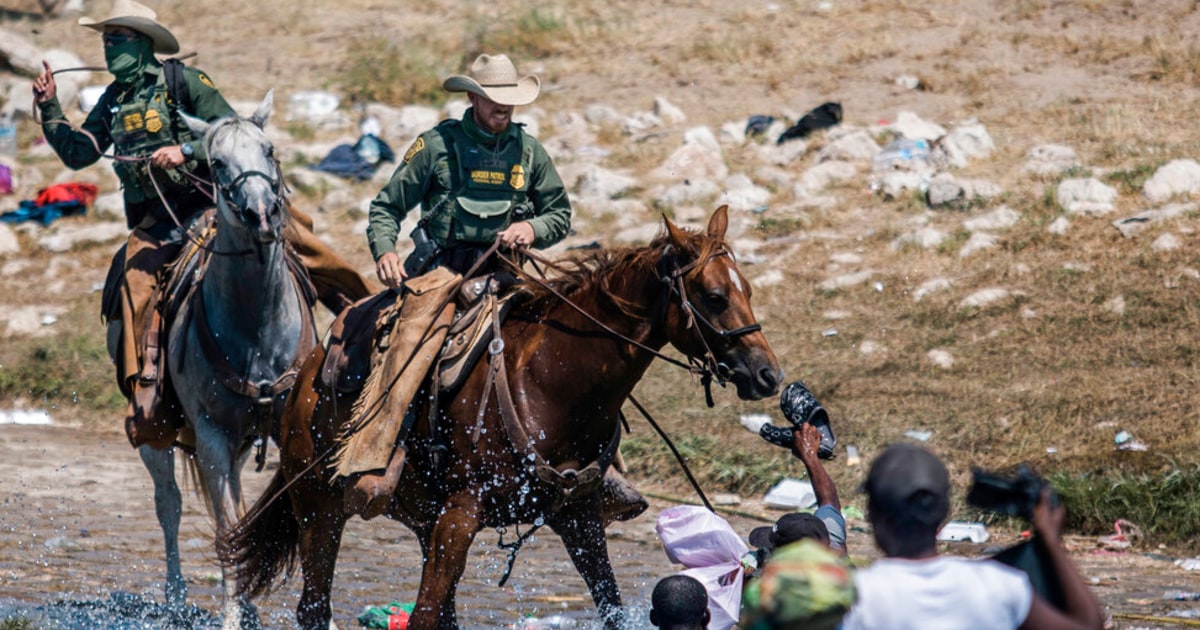


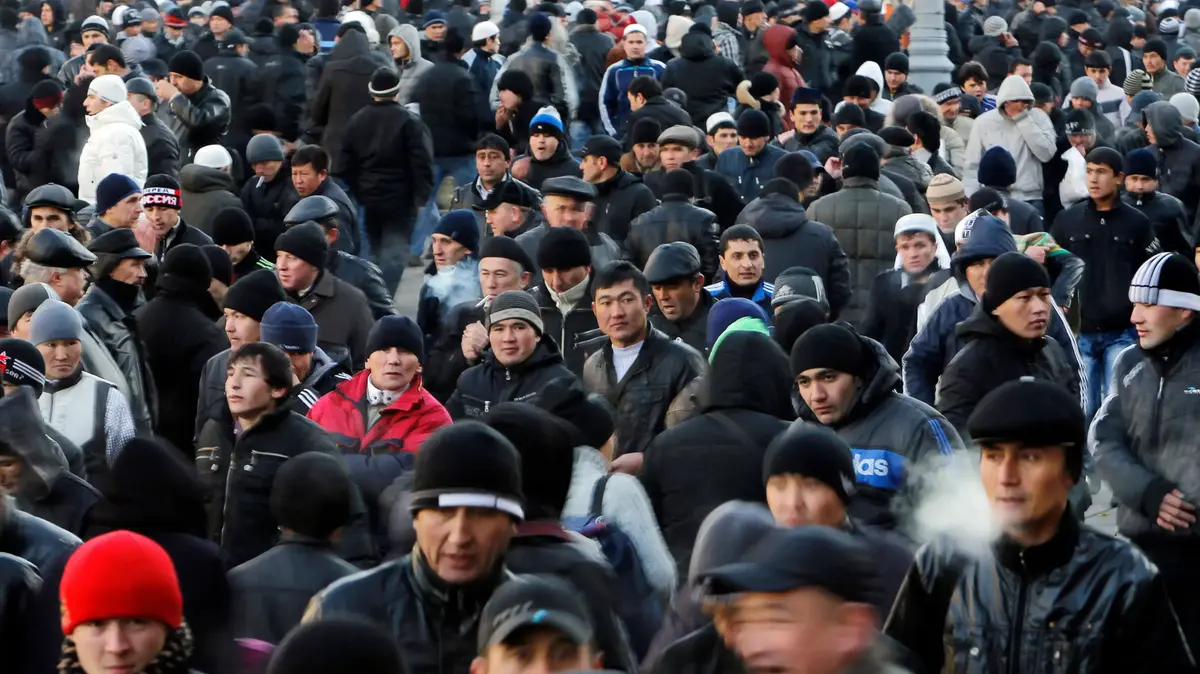
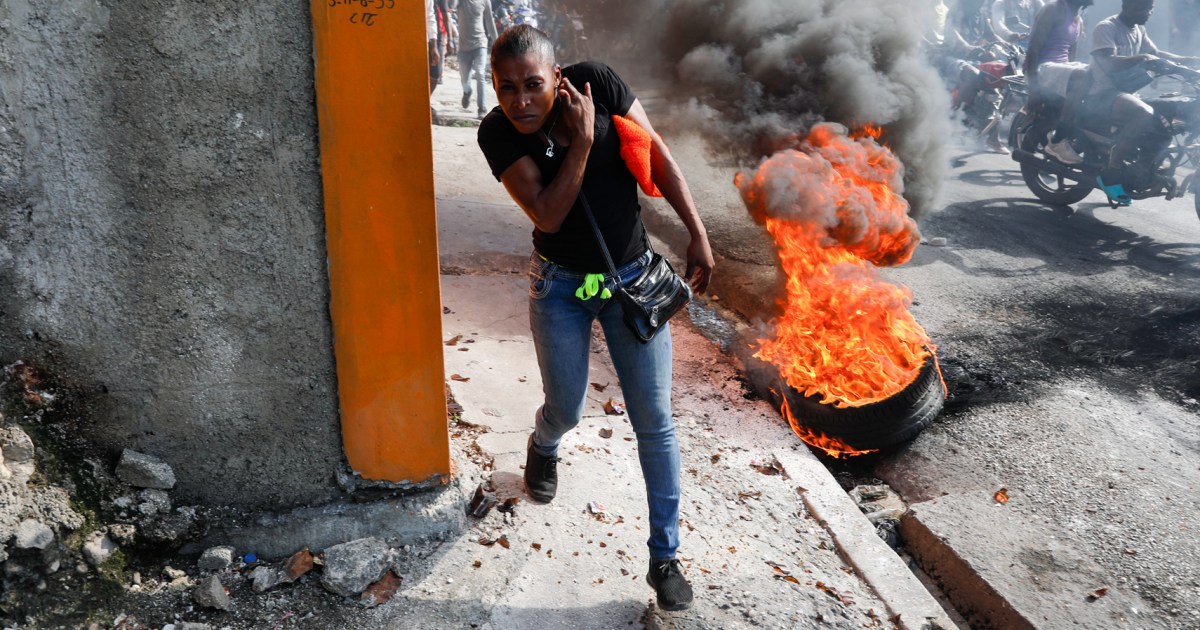
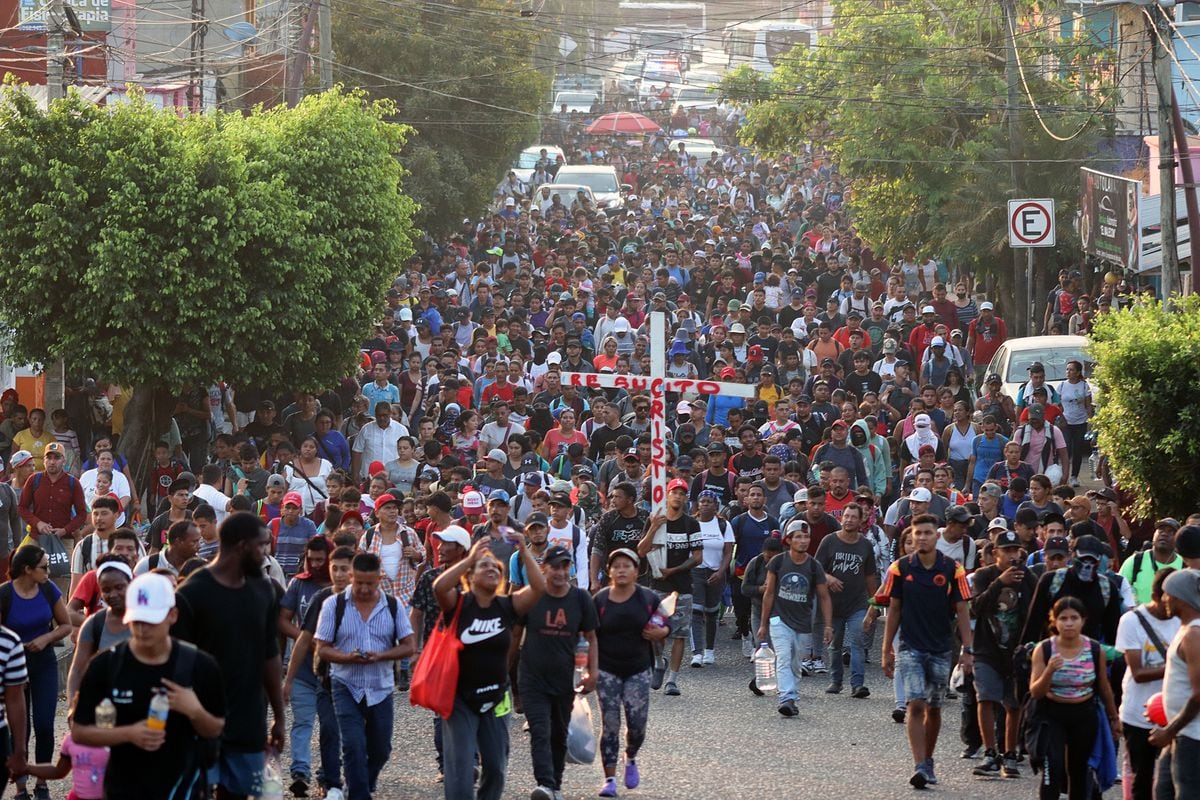


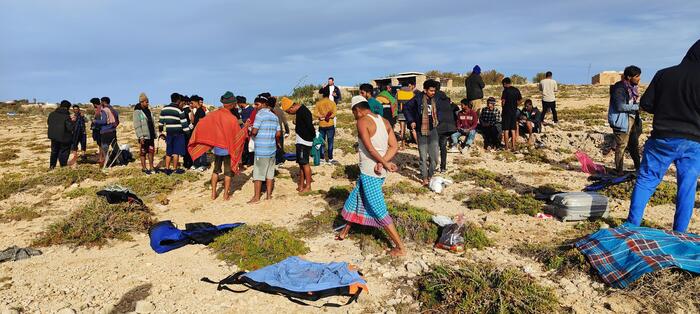

/cloudfront-eu-central-1.images.arcpublishing.com/prisa/KMEYMJKESBAZBE4MRBAM4TGHIQ.jpg)


/cloudfront-eu-central-1.images.arcpublishing.com/prisa/EXJQILQR5QI7OMVRTERD7AEZAU.jpg)
